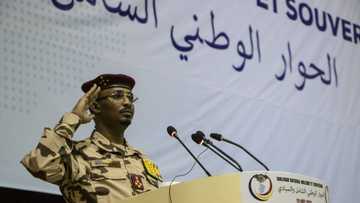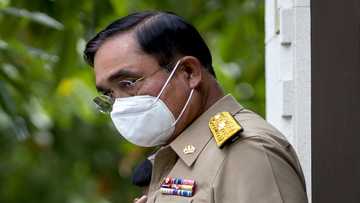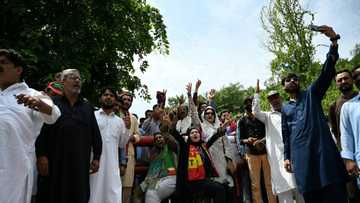Sadr supporters launch sit-in outside top Iraq judicial body
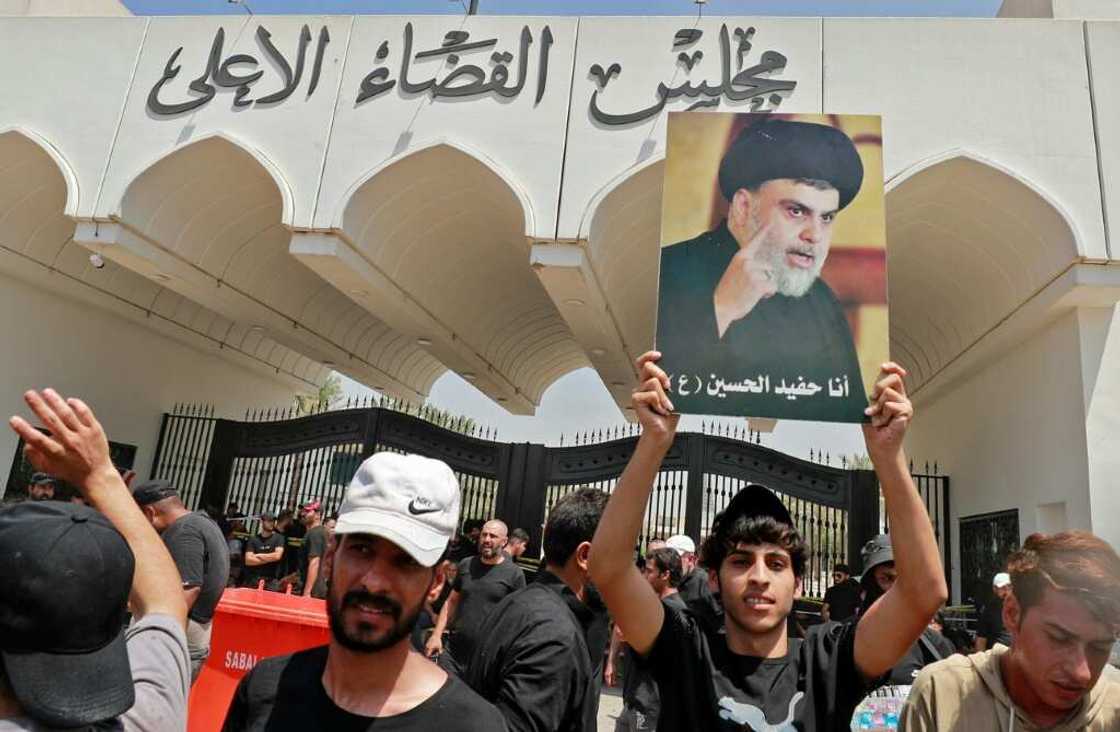
Source: AFP
PAY ATTENTION: Click “See First” under the “Following” tab to see Legit.ng News on your Facebook News Feed!
Several hundred supporters of Shiite cleric Moqtada Sadr launched a sit-in outside Iraq's top judicial body on Tuesday, ratcheting up tensions in a showdown with a rival Shiite alliance.
Caretaker Prime Minister Mustafa al-Kadhemi cut short a visit to Egypt, where he had been due to take part in a five-nation summit, to return home to monitor developments.
Kadhemi "called on all political parties to calm down and to take advantage of the opportunity for national dialogue to get the country out of its current crisis", a statement from his office said.
The standoff between rival Shiite factions has triggered an intensifying war of words, but so far no violence.
The Sadrists, who have already been camped outside parliament for the past three weeks, pitched tents outside the gates of the judicial body's Baghdad headquarters, AFP correspondents reported.
They carried placards demanding the dissolution of parliament and new elections, 10 months after an inconclusive poll failed to deliver a majority government.
PAY ATTENTION: Share your outstanding story with our editors! Please reach us through info@corp.legit.ng!
Even though his political bloc has taken part in previous administrations, securing top jobs in government ministries, Sadr himself has managed to keep above the political fray and is lionised by his supporters as an outsider dedicated to the fight against a corrupt elite.
"We want to stamp out corruption," said Abu Karar al-Alyawi, a Sadr supporter among those demonstrating on Tuesday.
"The judicial system is being blackmailed or maybe it's corrupt too."
On August 10, Sadr gave the Supreme Judicial Council one week to dissolve parliament to end the political deadlock but the council ruled that it lacked the authority to do so.
In the face of Tuesday's protest, the council announced it was suspending work until further notice.
Talks boycotted by Sadrists
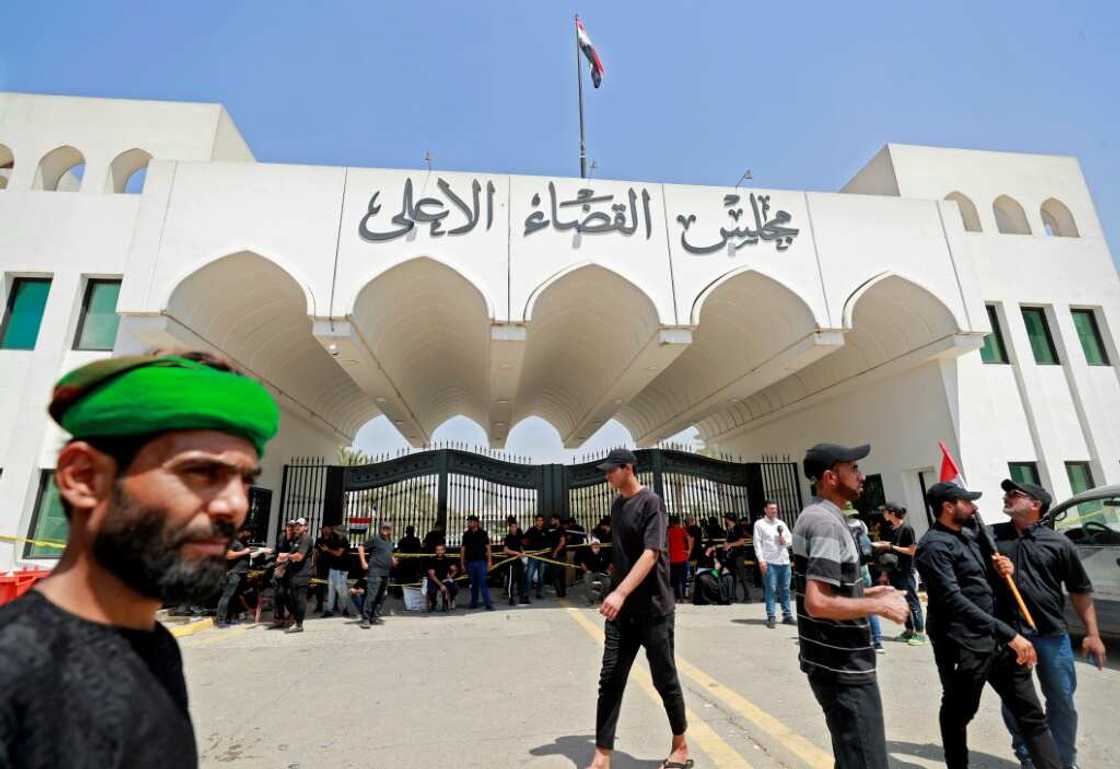
Source: AFP
Police deployed in numbers around the headquarters, which unlike parliament, lies outside Baghdad's high-security Green Zone government and diplomatic compound.
Sadr's opponents in the so-called Coordination Framework, who have been holding a sit-in of their own just outside the Green Zone, want a transitional government before new polls are held.
They include former paramilitaries of the Tehran-backed Hashed al-Shaabi network, and the party of ex-prime minister Nuri al-Maliki, a longtime Sadr foe.
Last week, the prime minister convened crisis talks with party leaders, but they were boycotted by the Sadrists.
Since the aftermath of the US-led invasion of 2003, Iraq has been governed under a sectarian power-sharing system that reserves the premiership for the country's Shiite majority community.
The Sadrists insist that after emerging from 2021 elections as the largest bloc in parliament, the constitution be amended to give it the right to nominate the prime minister, something their opponents strongly oppose.
The persistent failure of the rival Shiite factions to form a government in a country blighted by ailing infrastructure and crumbling public services has sparked mounting public frustration.
Iraqis grown used to daily power cuts lasting much of the day now also face water shortages as drought ravages swathes of the country.
Despite its oil wealth, many Iraqis are mired in poverty, and some 35 percent of young people are unemployed, according to the United Nations.
Source: AFP


